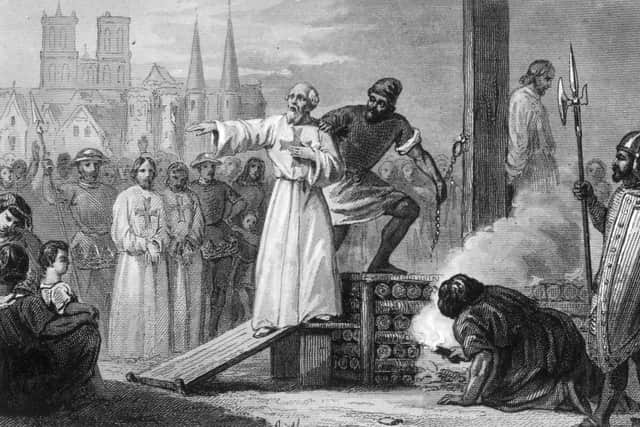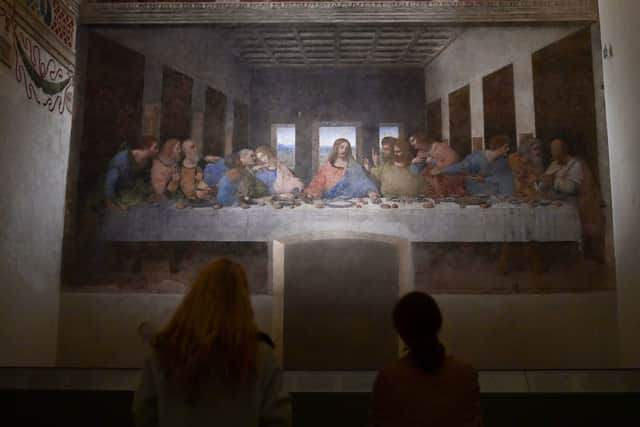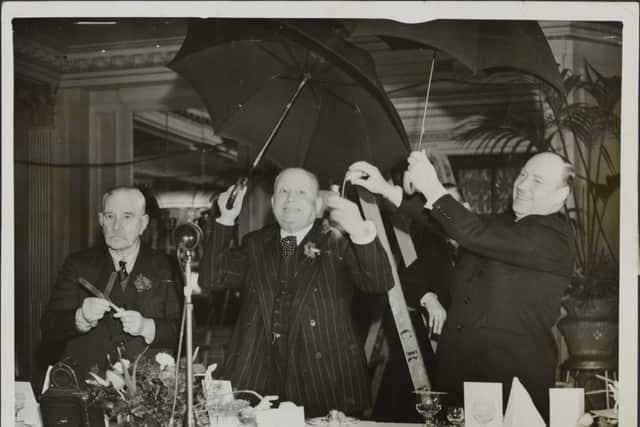Why is Friday the 13th unlucky? Meaning of superstitious day explained - and what is triskaidekaphobia
and live on Freeview channel 276
Each year, at least once, Friday the 13th makes an appearance on our calendars - and for some, the date spells nothing but bad news.
While the date can occur up to three times in a single year, 2023 has it twice - on Friday 13 January and Friday 13 October.
Advertisement
Hide AdAdvertisement
Hide AdBut where does the superstition around this particular date come from? This is what you need to know.
Why is Friday the 13th considered unlucky?
There are a number of theories around why Friday the 13th is considered such an unlucky date. One of the most popular ones regarding the superstition connects the date of Friday the 13th with the demise of the Knights Templar.
Hundreds of Knights Templar were arrested on Friday 13 October, 1307, by King Philip IV of France.


History states: “Founded around 1118 as a monastic military order devoted to the protection of pilgrims traveling to the Holy Land following the Christian capture of Jerusalem during the First Crusade, the Knights Templar quickly became one of the richest and most influential groups of the Middle Ages, thanks to lavish donations from the crowned heads of Europe, eager to curry favor with the fierce Knights.
Advertisement
Hide AdAdvertisement
Hide Ad“By the turn of the 14th century, the Templars had established a system of castles, churches and banks throughout Western Europe. And it was this astonishing wealth that would lead to their downfall.”
In a bid to overtake the money, land and power from the Knights Templar, King Philip IV of France ordered their arrest. The Knights Templar were brutally tortured, kept in isolation and fed only scraps and water.
What are some other theories?
Another popular theory regarding the unluckiness of Friday the 13th is attributed to the story of Jesus’s last supper, and his crucifixion. Leonardo da Vinci’s painting of the Last Supper presents 13 people in the Upper Room on the 13th of Nisan Maundy Thursday, the night prior to Jesus’s death on Good Friday.
Judas, who betrayed Jesus, is also thought to have been the 13th guest to sit at the table.


Advertisement
Hide AdAdvertisement
Hide AdAdditionally, the connotations of Friday the 13th being unlucky could be traced back to a novel by Thomas W Lawson called Friday, the Thirteenth, which was published in 1907.
The story tells the tale of a banker who uses the superstition around Friday the 13th to create a Wall Street panic on that very date.
In the 1869 biography of Italian composer Gioachino Rossini, who died on Friday 13 November, by Henry Sutherland, it is documented that the composer regarded Friday as an unlucky day, and the 13th as an unlucky number.
What is triskaidekaphobia?
Triskaidekaphobia is the irrational fear of the number 13. Triskaidekaphobia.info explains: “Most people with triskaidekaphobia have an immersive and ongoing phobia / fear of the number 13.
Advertisement
Hide AdAdvertisement
Hide Ad“The premise of phobia or fear of the number 13 is usually challenging to explain, but in some cases, its causes are linked to panic-related experiences or genetic conditions.


“Fear of the number 13 can be handled by a psychologist using exposure therapy in combination with drugs.”
The word has Greek origins, with tris meaning three, kai meaning and, deka meaning 10 and phobia meaning fear. Paraskevidekatriaphobia refers to the specific fear of Friday the 13th, not just the number 13.
Do we see triskaidekaphobia in everyday life?
While you may not have thought about it before, the superstition regarding the number 13 can be seen in various parts of society.
Advertisement
Hide AdAdvertisement
Hide AdMajor airlines, such as Air France, Lufthansa and Ryanair, don’t have a 13th row in their places, and many hotels also don’t have a room number 13, or a 13th floor.
Lufthansa explains: “In some cultures, the number 13 is considered unlucky. That is why there is no row 13 in planes, because we respect the superstition. That way nobody who thinks that the number 13 is unlucky has to sit in that row.”
Some cruise liners also don’t have a deck or floor number 13, and many restaurants don’t have a number 13 table either.
Comment Guidelines
National World encourages reader discussion on our stories. User feedback, insights and back-and-forth exchanges add a rich layer of context to reporting. Please review our Community Guidelines before commenting.